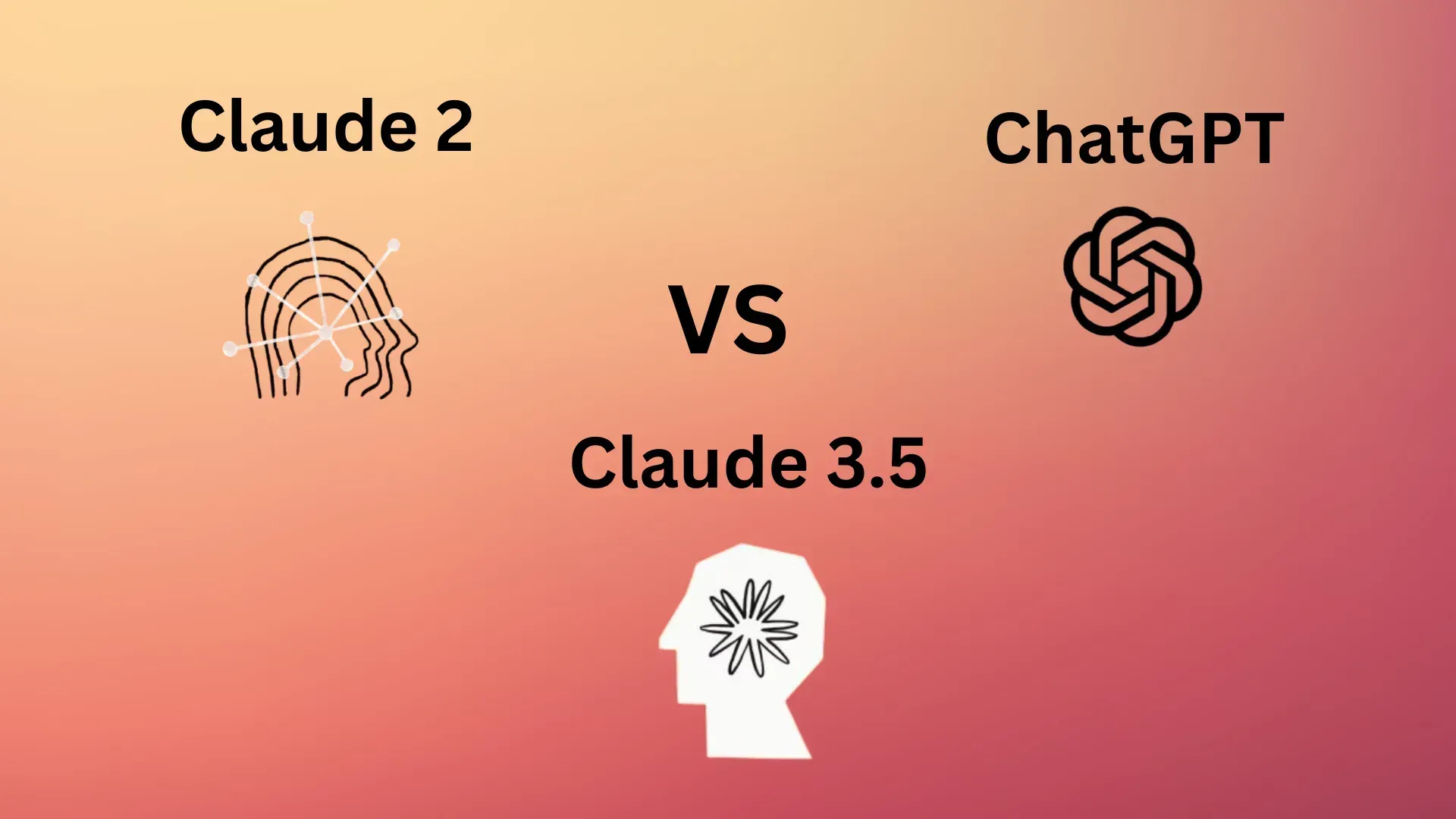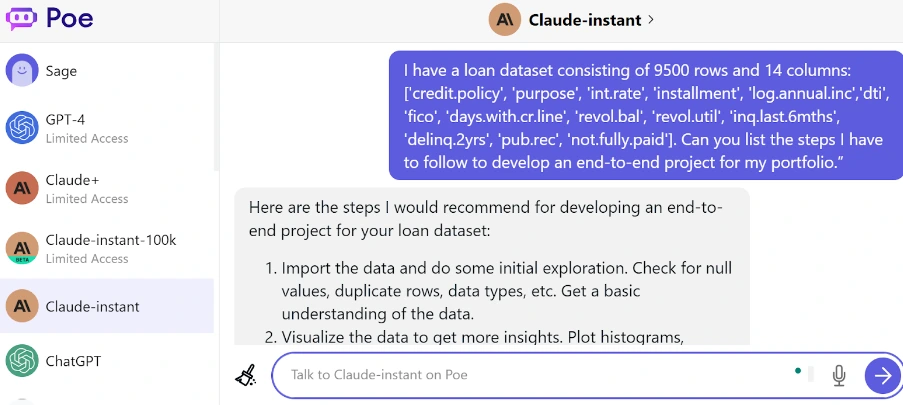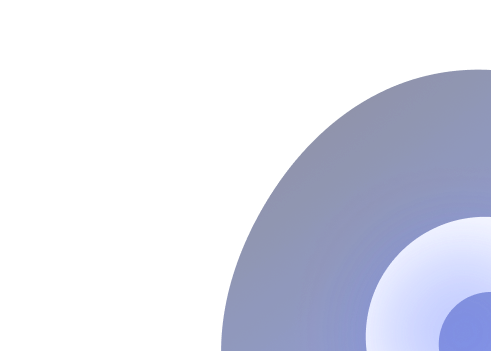Claude 3.5 Vs Claude 2 Vs ChatGPT: A Detailed Comparison

A few months ago, we published a blog, “Llama 2 Vs GPT-3.5 Vs GPT-4” to help you choose the best tool for your needs.
Since then, the generative AI landscape has continued to evolve.
- OpenAI’s ChatGPT rolled out new voice and image capabilities
- OpenAI is testing a new search engine that’s based on ChatGPT.
- Anthropic’s Claude introduced various new features to its app.
ChatGPT and Claude are the two most sought-after generative AI tools in the market. While ChatGPT is more widely known, that doesn’t mean Claude is any less capable.
As an AI-powered B2B SaaS company, we work with various AI tools daily. We’ve been using both ChatGPT and Claude since they were first launched.
To compare these two AI giants, we conducted over a dozen tests to evaluate their performance on different tasks, focusing on where the latest versions—ChatGPT's GPT-4o and GPT-4o mini (the latest model) and Claude 3.5 (Sonnet)—excelled or fell short compared to earlier generative AI models.
By closely analyzing the performance of both Claude and ChatGPT, we discovered several ways in which Claude outperforms ChatGPT.
Here’s why you might want to consider choosing Claude the next time you reach for ChatGPT.
Table of Contents
- Introduction to ChatGPT and Claude 3.5
- Claude 3.5 vs ChatGPT: What, When & How To Choose
- How Token Size, Processing Time, Knowledge Base And Pricing All Correlate
- ChatGPT's Capabilities
- Claude 3.5 Capabilities
- ChatGPT Limitations
- Claude 3.5 Limitations
- Conclusion
- Frequently Asked Questions

Claude vs ChatGPT: A Quick Comparison
In case you’re a novice to both tools or want to know more about the latest updates.
Claude and ChatGPT are both powered by advanced Large Language Models (LLMs) and Machine Learning Models (LMMs).
Claude focuses on safety and ethical use, making it ideal for sensitive contexts where controlled responses are crucial.
ChatGPT, developed by OpenAI, excels in flexibility and versatility, suitable for a wide range of applications from creative writing to technical support.
Here's a comparative table for ChatGPT and Claude:
Claude vs ChatGPT: What, When & How To Choose
Claude 3.5 Sonnet not only surpasses GPT-4o and Gemini 1.5 Pro in various benchmarks but also introduces an exciting new feature called Artifacts.
Here are some top reasons why you should choose Claude over ChatGPT.
1. Bigger Context Window: The Power of Words
One of the most striking differences between Claude 3.0 and ChatGPT 4o is the context window.
Claude 3.5 Sonnet boasts an impressive 200, 000 tokens, giving users an extensive canvas to work with. In contrast, ChatGPT- 4o has a significantly smaller context window with just 1,28,000 tokens, equivalent.
This vast difference in context size empowers Claude 3.5 users to process entire documents seamlessly, making it a superior choice for tasks requiring comprehensive context analysis.
2. Contextual Responses: Better speed and efficiency
Claude's speed and efficiency in generating ideas, aiding in writing, editing, and summarization are leaving users impressed.
The chatbot's ability to craft poems, speeches, and summaries is a testament to its versatility.
Moreover, its latest model, Claude 3.5 Sonnet, delivers an impressive blend of performance, scalability, and cost-effectiveness, establishing a new standard for large-scale AI deployments.
Thanks to its training on vast datasets from the internet, Claude 3.5 excels at engaging users in fluid conversations.
While personal preferences may vary, many users find Claude 3.5 more accommodating for creative tasks. With each update, Claude 3.5 is refining its contextual responses and steadily gaining an upper hand in this domain.
3. Up-to-Date Knowledge: Staying Current
Knowledge is power, and Claude 3.5 seems to have an edge in this department. Its training data includes updates and information from 2022 and early 2023, making it more up-to-date than ChatGPT, which relies on data only up until 2021.
This means Claude 3.5 is better equipped to offer users the latest information without any subscription fees.
For example, when asked about the President of the United States, Claude 3.5 provides an up-to-date response, while ChatGPT mentions its training cut-off date.
4. Reading Multiple Files: Efficiency Redefined
One of Claude 3.5's standout features is its ability to read and process multiple files simultaneously. Users can upload two or three documents and request Claude 2 to compare and contrast the information, receiving a prompt response.
While ChatGPT Plus offers a similar feature through the Code Interpreter plugin, some users have found Claude 3.5's multi-file processing to be equally effective, particularly for tasks like generating summaries.
If you don't need to sift through a vast number of files regularly, Claude 2's efficiency might make you rethink the ChatGPT Plus subscription.
5. Faster Processing Time: Speed Matters
Speed is often a critical factor when working with AI chatbots, and Claude 3.5 does not disappoint. According to reports, Claude 2 exhibits faster response times, with an average of around 5 seconds per response.
While ChatGPT offers competitive processing speed, Claude 3.5's emphasis on performance is evident from its improved response times.
Note: Despite its strengths, Claude 3.5 does have limitations, such as no internet access and reduced performance in handling complex mathematical problems. Additionally, it's currently available in select regions.
However, users in other areas can still access Claude 3.5 through a VPN. In terms of privacy, Claude 3.5 allows users to delete their conversations and operates without internet access to safeguard sensitive information.
As AI technology continues to advance, it's exciting to witness the innovations that are shaping the future of productivity and creativity. Claude 3.5's emergence is a testament to the endless possibilities that AI can offer in our ever-connected world.
How Token Size, Processing Time, Knowledge Base And Pricing All Correlate
The correlation between token size, processing time, knowledge base, and pricing is critical when understanding and utilizing language model systems like ChatGPT (based on GPT-4) and Claude 3.5.
These factors are interconnected and play a significant role in shaping the capabilities, limitations, and costs associated with these AI models.
Let's break down the relationship between these elements:
Token Size and Knowledge Base
- Token size refers to the unit of text that the model processes. In neural networks, tokens are used to represent and compare pieces of text.
- The token size significantly impacts the knowledge base that the AI model can access. Each token represents a fragment of information, and the total token limit determines the size of the knowledge base.
- Larger models like GPT-4 can handle more tokens, which allows them to access a more extensive knowledge base.
Processing Time
- The processing time for AI models is influenced by the token size. Handling more tokens requires more computational resources and time.
- More advanced models with larger token limits, such as GPT-4, may take longer to generate responses compared to smaller models.
Pricing
- Pricing for using AI models is often based on token usage, which can include both input (prompt) and output (completion) tokens.
- The cost of using these models varies depending on the token pricing structure. Larger models with more tokens available for processing typically have higher associated costs.
- For example, GPT-4o model costs $0.020 for input and output per 1000 tokens, while Claude 3.5 charges between $0.018 for input and output per 1000 tokens. Check the prices here.
Claude 3.5, while more cost-effective for token pricing, may have limitations in its knowledge base compared to more advanced models like GPT-4.
Understanding these correlations helps businesses make informed decisions about which AI model to use for their specific needs.
Let's compare the capabilities of ChatGPT and Claude 3.5:
ChatGPT's Capabilities
- Real Time response: ChatGPT 4o can now interact in real-time to produce responses as low as 232ms and about an avg of about 320ms.
Real Time response of ChatGPT 4o
- API Support and Plugins: ChatGPT provides access to an API for developers and supports ChatGPT Plugins and custom GPTs, allowing for extended functionality.
- Multilingual Support: ChatGPT can communicate in more than 80 languages, making it versatile for a global audience.

- Natural HCI: It has now more natural human computer interaction and understand any kind of inputs be it text, image or audio and generates response the response as requested in image, text or audio.
- Real Time translation: ChatGPT now offers translation on the go, your colleague is italian, gpt 4o got you. You can now translate in real time.
ChatGPT recognizing objects from live camera and giving response as audio
- General Knowledge: ChatGPT claims to have mastery in all fields of study, by red teaming up 70+ external experts meaning it can answer queries related to various subjects and domains.

- Humor: ChatGPT is capable of cracking dad jokes with the intention of making users smile, offering a light-hearted interaction.

- Academic Performance: It has demonstrated the ability to perform well on standardized examinations, implying a broad knowledge base.
Solving math problems with ChatGPT
Read more about chatgpt 4o its features and perfomance in our blog.
Claude 3.5 Capabilities

Performance: Claude 2 achieved a marginal pass on a blind-graded test, indicating a certain level of competence in understanding and generating text.
Token Limit: Claude 2 has a token limit of 100,000 tokens, allowing for longer and more in-depth conversations.
Conversational Abilities: Claude can engage in open-ended conversations, tell jokes, and discuss various topics, promoting interactive and versatile interactions.
Creative Writing: It can write fictional stories, poems, and other creative content, highlighting its creative writing capabilities.
Precise Knowledge: Claude is claimed to answer queries more precisely, particularly in the fields of entertainment, history, geography, and basic algebra, indicating domain-specific expertise.
Ethical Principles: Claude adheres to ethical principles, making it suitable for industries like education, healthcare, and finance where ethical conduct is essential.
Content Moderation: It actively declines inappropriate requests, enhancing its suitability for maintaining a safe and respectful conversation environment.
Writing Style: Claude's writing style is noted for being more detailed and accurate, potentially resulting in more informative responses.
While both ChatGPT and Claude 2 possess conversational and creative capabilities, Claude 2 appears to excel in precision, ethics, and detailed writing, while ChatGPT emphasizes its wide-ranging knowledge and humor.
The choice between the two would depend on the specific requirements and priorities of the user or application.
ChatGPT Limitations
Factual Accuracy: ChatGPT can still generate incorrect or hallucinated information, which means it may provide answers that are factually inaccurate.
Lack of Real-Time Data: ChatGPT does not have access to web browsing or real-time data, making it unable to provide the most up-to-date information, and its knowledge is based on a static dataset.
Limited Logic Explanation: It is not well-equipped to explain complex logic in detail. It tends to provide concise, one-line answers to logical questions without delving into the underlying reasoning.
Claude 2 Limitations
Mathematical Competence: Claude 2 is noted as weaker in handling complex mathematical questions when compared to ChatGPT, implying a potential limitation in its mathematical knowledge.
Geographic Availability: Claude is available only in the United States and the United Kingdom, limiting its accessibility for users outside these regions.
No Internet Access: Similar to ChatGPT, Claude 2 also lacks internet access, which means it cannot fetch real-time data from the web.
Inconsistency: Claude is mentioned to have the issue of generating inconsistent and false statements, which can be a limitation in terms of providing reliable and accurate information.
Below is a comparative table of the performance of Claude vs ChatGPT

Conclusion
In the world of AI chatbots, ChatGPT and Claude offer unique strengths and cater to diverse user needs.
ChatGPT provides wide knowledge and humor, while Claude stands out with a larger context window, precision, and creative writing abilities.
The choice depends on specific requirements – Claude for precision and creative tasks, and ChatGPT for broad knowledge and casual interactions.
These AI chatbots drive technological advancements, promising more human-like interactions.
The future holds tailored chatbots for professional tasks, creative endeavors, and friendly conversations. ChatGPT and Claude mark the beginning of an exciting journey in AI chatbot development with more innovations to come.
Frequently Asked Questions
- What is the difference between Claude 2 and Chatgpt?
On the other hand, when it comes to token capacity, ChatGPT falls short with a limit of 8,192 tokens, roughly equivalent to just 4,000 words.
This significant disparity in context size paints ChatGPT as having limited processing capabilities in comparison to Claude 2.
If a user's requirement involves the processing of entire documents or extensive text, Claude 2 emerges as the more suitable choice due to its larger token capacity.
2. Does Claude outdo ChatGPT?
Claude 2, introduced by Anthropic in July, outperforms ChatGPT in several aspects.
The rapid evolution of AI technology has given birth to advanced chatbots like Claude 2, which have taken the realm of conversational AI to new heights.
These AI chatbots have become an integral part of our digitally connected world, offering a wide range of applications and services.
If you haven't yet experienced the capabilities of AI-powered chatbots, you might be missing out on the latest and most efficient ways to interact with technology.
3. Are Claude & ChatGPT good translators?
Both Claude and ChatGPT excel in foreign language understanding and can proficiently provide translations and explanations in various languages.
In a test where I asked Claude 2 and ChatGPT to translate a French phrase, both chatbots demonstrated their translation capabilities admirably.
However, Claude went a step further by offering additional contextual explanations, enhancing the overall user experience and comprehension of the translated phrase.
This added layer of insight can be particularly valuable in scenarios where a deeper understanding of the foreign language's nuances is required.
4. Is ChatGPT a good choice?
ChatGPT's strength lies in its extensive multilingual capabilities, having been trained with data from over 100 languages.
This wide language coverage positions it as a reliable choice for users around the world who require language support in their interactions with AI.
In contrast, Claude 2 primarily specializes in English but extends its support to several major languages, including Spanish, French, German, Portuguese, Italian, and Mandarin.
However, it's important to note that if Claude 2 encounters input in languages it doesn't recognize, it defaults to English.
While Claude 2's versatility in supporting various languages is beneficial, users should be aware of this default language setting, especially when interacting with the chatbot in languages outside its primary focus.

Simplify Your Data Annotation Workflow With Proven Strategies
.png)


